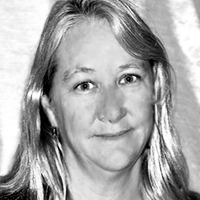Anne MacRae: In terms of my bio, I wanted to point out just a few things. I am still very active in occupational therapy even though I am retired from the university. In fact I will be returning to Malta in June, taking sixteen graduate students from occupational therapy with me, for a study abroad tour. It is a small and beautiful island in the Mediterranean Sea, and I consider it my second or third home. I love it.
Also notice on this opening slide that I have my email address. That email address is also listed on the last slide. Please feel free to follow up. A couple of people already have from yesterday's course. Send me a note that you have tried that you learned in this presentation or you just want to further converse about these topics. I am always open to that.
Review
I have two slides here that are going to be a review of what I covered yesterday. Occupational therapy programming with a psychosocial or a mental health emphasis can and should include a wide range of medical facilities, mental health facilities, substance abuse programs, social services, as well as home and community. In other words, there is a lot that we can do and should be doing in a variety of settings across their lifespan (Figure 1).
Figure 1. Settings and populations.
I also talked about how to break it down when looking at the different kinds of settings.
Institutional
Generally they are very short-term. I believe the main focus of OT should be to help stabilize the person through structured activities, comfort, and support. Mental health hospitals also view their main goal as stabilization, but it is done primarily through medication, rest, hygiene and food. It can be done in three days and then they are out the door. I believe there needs to be a little more to it than that. We offer a different way of helping the client become stabilized. We can begin goal setting and preparing them for transition to the next level.
Community
In the community, our role is a little different. We are talking about goal refinement and actual skill development.
Home
Then in the home, safety, goal attainment, and becoming part of a greater society and community are the areas we work on. We can also work on environmental adaptation in the home.
We also talked yesterday about the roles of occupational therapy in program development and delivery, again with an emphasis on psychosocial and mental health kinds of programming (Figure 2).
Figure 2. Roles in program development and delivery.
We are all aware of being a direct service provider, and doing groups and individual interventions. I think as the mental health landscape is changing so much, we need to get more involved in this variety of other roles, as a co-leader with someone from another profession, as an author or designer of specific programs, as a consultant, as a trainer, or a mentor. This is particularly true if people such as peer specialists or case managers may be doing some of the kinds of programs we designed. We can also be a supervisor, potentially of a staff, but also hopefully of interns. Those are the two slides, in a very short amount of time, sum up what we covered yesterday.
